
Six Days in Fallujah: Modern Censorship - Article
by Lee Mehr , posted on 02 May 2021 / 4,332 ViewsLike most of the US' post-WWII military engagements, the Iraq War will go down as another strategic and – more importantly – moral failing for the country. History books will never be kind to it. This reality presents an interesting dilemma for games with respect to recency bias: does this interactive medium enable a pernicious form of propagandistic messaging? If so, is censorship a valid weapon against it? As though rising above the ashes, Six Days in Fallujah returns a decade later to revive this quandary. The difference this time? Even video game artists are among the ranks to take aim against it.
To those unaware, Six Days' story framework is heavily inspired by the Second Battle of Fallujah, which is credited as the bloodiest battle of the Iraq War. The timeline between this violent bout and Six Days' official announcement was less than five years. Given this fact, plus the continued fighting, it's no surprise mainstream media would latch on to this controversy. Fox News' Gretchen Carlson even sandbagged a veteran who served an advisory role for then-developer Atomic Games. After continued phone & e-mail campaigns from various groups, then-publisher Konami decided to drop financial support altogether. The concomitant effect of this was Atomic Games eventually withering on the vine.
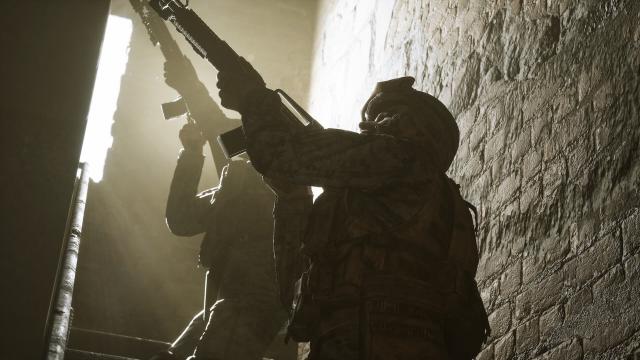
Fast-forward to a new developer and publisher, Highwire Games & Victura respectively, Six Days finds new life with a slated 2021 release window. The controversy has been revived too. Hot off a new gameplay trailer, Hala Alsalman made a change.org petition directed at various software industry leaders, UN Secretary General António Guterres, and even President Joe Biden (who actually voted in favor of The Iraq War as a Senator). This consideration for censorship initially came with the loaded claim that Six Days was "inevitably breeding a new wave of mass shooters" before an impromptu stealth edit massaged the charge down to conditioning players to be racist.
Such low-hanging fruit as a random online appeal might imply I'm desperate for a new article. After all, I could just as easily petition every foreign leader to ban Klondike Bars on the notion that "some will go to any length for one." But it's the 16k signers (and counting), not the original petitioner, who warrant greater attention. Artists and critics such as voice actor Jennifer Hale, Gotham Knights' Lead Game Designer Osama Dorias, The Gamer writer Seth Parmer, Respawn Senior Designer Alexa Kim, Unreal Lighting Artist Olivia Wertheimer, and many more industry figures are openly indignant about Six Days returning. Just to highlight its importance: it's very likely each of these individuals signed onto a petition when the 'mass shooter' presumption was spelled out. I guess it was more of Jack Thompson's political affiliations than his reasoning that was their issue with him.
Please take the time to sign this petition to stop the making a game that intends to normalize and trivialize the murder of my fellow Iraqis.
Please RT and spread the word any way that you can. Don't let these monsters get away with this.https://t.co/2F7QMXDopv
— Osama Dorias 🇵🇸✊🏼 (@osamadorias) March 24, 2021
I don't believe that parallel to gaming's past is forced either. The internet tends to muddy terminology around free speech and 'capital C' censorship, but it's applicable to invoke Thompson here. The arena being an online link versus the Supreme Court does not dismiss the clearly stated intentions. The calls for deplatforming were both focused to specific storefronts (soft-censorship) and expansionary to include leaders of governing organizations (censorship). So, this effectively means each signee believes it's a societal good if this game were banned from prominent online stores and even nations altogether.
I've harped about the obnoxious cliques within games media before, but there's something so confusing in seeing prominent pockets of this industry seething over creative expression. The most prominent gaming sites & personalities were happy to take authoritarians to task whenever shooters were considered murder-spree simulators; now, they'll happily sign on to something assuming games will manifest a new wave of hate crimes. I'm sure we can consider various nuanced studies that examine short-term aggression or whatnot, but leap-frogging that to vicious acts against innocent people is still unfounded. The point being: you'd think gaming's previous battles over this would mean defending free expression was the default position.
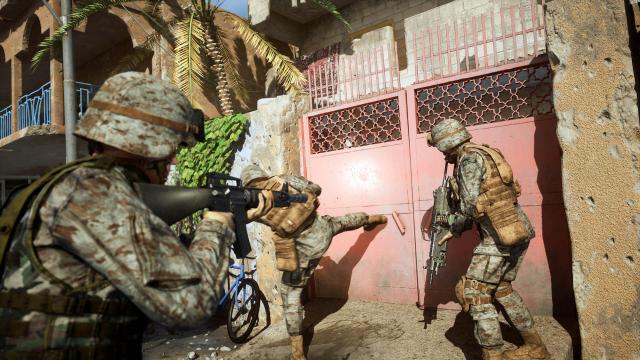
Another lesson this pious collective hasn't internalized is how ineffective this move is to their own "cause." Do any of them not remember how Hatred and the Postal series became household names thanks to free advertising? This is gaming's equivalent of a Parental Advisory stamp. Would-be censors bleat on and on about an offensive game; then, lo and behold, consumers flip them off by purchasing it. What initially seemed like an unremarkable FPS, outside of the neat tech, now goes on to be a statement.
Let's say that this stand against Six Days breaks that mold, then. Maybe it’s legitimately censored across the world – outside of PirateBay – and other upcoming modern military shooters are cancelled as a result. Despite not knowing just how worthwhile this game will be, I still think that would be a terrible mistake. In my eyes, those in favor should receive the same contempt as Gretchen Carlson's repugnant tone towards said soldier. Because they're treating this the same way nanny-state conservatives did in the past: with no trust in the creatives.
To emphasize this fault, I'll call upon Six Days' advertising to enhance my point. For all the whining about "disregarding Iraqi voices" in that petition, it's funny how the new trailer literally interviews two Fallujahens describing their mindset at the time; that part was truly effective to me. One of the game's big draws is in striving to be a "playable documentary" of sorts, an interactive examination of Fallujah's hellish conditions. It remains to be seen how well the team keeps to that promise. Should these interview splices be carefully integrated throughout the main game? This effectively means distant Iraqi voices could be heard by a new mass of people who would've otherwise remained ignorant. Think of how ironic it sounds to cancel that chance on a whim.
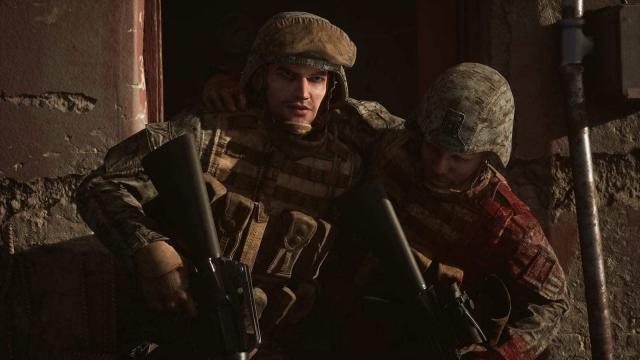
In summary, the best approach I see moving forward is the inverse of this injudicious petition. To put it modestly: you owe at least an inch to every well-intentioned developer. Granted, modern military shooters can be rife with exploitative material; in fact, I reviewed one that featured a pathetic waterboarding mini-game. But there are also interesting counter-examples like Spec Ops: The Line too. Both games had as equal a footing as possible and both were challenged on their merits through critique. Instead of adopting the stifling attitude of censorship, let's pursue an approach that not only broadens dialogue but also potentially refines every artists' voice in the process.
Despite being one of newest writers on VGChartz, Lee has been a part of the community for over a decade. His gaming history spans several console generations: N64 & NES at home while enjoying some Playstation, SEGA, and PC titles elsewhere. Being an Independent Contractor by trade (electric, plumbing, etc.) affords him more gaming luxuries today though. Reader warning: each click given to his articles only helps to inflate his Texas-sized ego. Proceed with caution.
More Articles
OK so the main lines of criticism against the game revolve around four lines (IGN)
1) The game's pitch and marketing thus far focuses heavily on US forces who invaded Fallujah, and has either minimized or often even excluded stories from Iraqi civilians.
2) A game like Six Days in Fallujah runs the risk of contributing to an ongoing culture of generalized, racist, and dehumanizing portrayals of Arab, Muslim, and Middle Eastern cultures across all entertainment, and especially FPS games.
3) Publisher Victura has numerous verifiable past ties to the US military, making it difficult to trust that Six Days in Fallujah is not at best unintentional, or at worst very intentional, US military propaganda.
4) Six Days in Fallujah has had minimal and often contradictory messaging as to how it will address the controversial political contexts around the Second Battle of Fallujah, including the documented (if denied) war crimes allegedly committed by US forces.
I think 1) is unfair. The game certainly plays out from the perspective of US marines. The creative goal of the game is to transport you into their shoes. It's not trying to be a perspectivist social scientific account of the war, nor should it be expected to be.
2) 'Risks' contributing to a culture of dehumanizing/racist etc. portrayals. Well that depends on whether the portrayal is dehumanising and racist, doesn't it? Being dehumanising/racist is a good reason to oppose a game. Risking being dehumanising/racist is a poor reason to oppose a game.If we could only tell stories without risk, without the potential to provoke, all storytelling media would be castrated. I've also seen arguments that portraying Fallujah as a warzone betrays the fact that it was also home to many. I have seen countless examples, from Saving Private Ryan to Halo: Reach, where visual and conventional storytelling can show the human cost of conflicts while preserving an military theme.
3) Yeah this is a fair concern. I trust creatives especially Martin O'Donnell, and co. to get it right. Maybe they won't. But that's an after-it-releases criticism, not a reason why it shouldn't be made.
4) I think it's quite clear that the player will sometimes perpetrate a war crime when playing the game. The conclusions you draw can be your own. If this is done well, the terror of urban combat and the unavoidability of civilian death should make the player criticise the wanton disregard of the coalition command for their own soldiers and for the civilians. It can also help them draw the distinction between the soldiers and the command.
It is again worth noting that by sympathetically telling the stories of frontline soldiers they are not ipso facto endorsing the war of the US against Iraq. One thinks of the Tiger tank story in BFV, which only the very least perceptive critics thought sympathised with the Nazi cause. It is possible for good and noble soldiers to be involved in an ignoble war.
I am about as anti-us military propaganda as a person can be. In fact, I think the US military should be scaled back by about 95%, and used only to protect the United States from invasion. I think the Iraq war was absolute ridiculous disaster, and Bush and his cronies that got us into it should be charged with war crimes for lying about the reasons that the invasion was necessary.
But, I am even more against censorship. A developer should make whatever the fuck they want. If I don't like it, I won't buy it. If the game is offensive to a lot of people, it won't sell well, and market forces will likely prevent a similar game from being made anytime soon.
Also, if we're going to cancel games where war crimes are committed, we're going to have to get rid of a hell of a lot of games. I'm playing Assassin's Creed Valhalla right now, and my character lights people's villages on fire after robbing them, just so that I can improve the quality of life in my settlement. It's totally unacceptable from a humanitarian point of view. It also fails to tell the stories of the Anglo-Saxon settlers whose lives me and my fellow Vikings destroyed. Should we prohibit such games? Would we say that this story is far enough in the past that it doesn't matter? If so, where is the line? 5 years? 50 years? 500 years?
I played as a Nazi soldier in Battlefield the other day........
"Such low-hanging fruit as a random online appeal might imply I'm desperate for a new article."
Well, yeah. It kind of does, because what we have is an insignificant number of people on the internet complaining about something, and an article complaining about their complaining. And now to be fair, a comment complaining about the complaining of the complaining.
For comparison's sake, 50,000 people signed a petition demanding Sony remake The Last Of US II. 77,000 people have called for Nickelodeon to cancel Spongebob Camp Coral. 35,000 people petitioned Disney to change their casting of the live action Little Mermaid. 50,000 have signed a petition asking Disney to stop remaking their live action movies altogether. Somehow, I don't think any of these are going to work. People whine about things they don't like online all the time. This is journalism on the level of Peter Griffin's "You Know What Really Grinds My Gears".
"So, this effectively means each signee believes it's a societal good if this game were banned from prominent online stores and even nations altogether. The calls for deplatforming were both focused to specific storefronts (soft-censorship) and expansionary to include leaders of governing organizations (censorship)."
No, it absolutely does not, and this is ridiculous. I signed a petition to bring back Glow on Netfix (which is an awesome show). That does not mean I subscribe to everything said in the petition, and to be honest, I have no idea who it was addressed to. I mean, I assumed it was addressed to Netflix, but I didn't check. For all I know it was directed towards Joe Biden, but that doesn't mean I believe that the US Government should intervene and give the Gorgeous Ladies of Wrestling a fitting finale.
This is the exact kind of yellow journalism that the cancel culture people love to call out. JK Rowling liked a tweet from a transphobic person, so she must be a rabid transphobe. Jenifer Hale added her name to a petition against Six Days in Fallujah, so she must be in favor of government censorship of the game. Oh, and she probably is totally fine with banning violent games and only argued with Jack Thompson because he was a Republican (at some points in time).
As if everyone who signs a petition not only read and agrees with it down to the last word. Ffs. Do you think all of these people checked who it was addressed to? Do you think any of them signed with even the slightest belief that Joe Biden was going to pass an executive order to ban a particular videogame, which he absolutely does not have any ability to do? FFS.
The common sense interpretation would be that these people simply didn't like this game and were voicing their displeasure. Maybe they should have checked the addressee before signing, but they likely didn't think it was addressed to Joe Biden, because why on Earth would it be. To claim that based on this that they are endorsing wholesale government censorship is a wildly uncharitable reading. It's the kind of vilification that you were lambasting last week or so in the tragic tale of the man who wasn't fired for their beliefs.
This article is awfully audacious.
"Your side-stepping to emphasize numbers isn't valid. The entire focus is designated towards who among the signers can be found within the industry. The answer? A strange but notable assortment that seem to span various spheres of influence. Like... okay.... online petitions can be signed by anyone, as already alluded to. But it takes on another form of interest when it's more than nobodies applauding this move"
You felt the need to point out the number of people who have signed, so I thought you felt that fact was relevant. My bad.
But sure, lets talk about the people who signed this. A voice actress, a writer who has amassed a following of 405 twitter users, a lighting artist, a WB lead developer, and senior developer for Respawn. Don't mean to insult anyone, but your "strange but notable" coalition of influencers is a whopping 5 confirmed "insiders". Of those, only two potentially have any real clout in the industry. Whether you judge it by the prominence of the signees, or the raw number, there does not seem to be any real threat. You're tilting at windmills.
"Paraphrase: "I didn't thoroughly read this "SAVE GLOW!!!!" petition, so what makes you think they willingly ascribe to everything in this one?" I didn't really put forth that claim; just more of a focus on what seems to be this petition's focus. And what is this weird counter-assumption wherein I seem nutty in thinking a modicum of reading is done by these folks before signing an online appeal? Because, even if we're to follow this line of logic, then at best their ignorance attached them to something that (at bare minimum) is content with soft-censorship - just like what happened to it before. This comparison is so laughable."
When someone says paraphrase, you know a strawman is coming. It's a laughable comparison because it's not a comparison. It just demonstrates the possibility that not everyone takes online petitions super seriously, a point that any rational person would have figured out on their own. Unless you have a special reason to believe that these people read this petition in a different way, and if you had some integrity, you would consider this possibility before claiming that EACH SIGNEE is in favor of government censorship. The only evidence you have is your personal hunch that people in the gaming industry would take this super seriously. That's fine if you want to rant on your blog, but for anything beyond that, some sort of evidence is required.
As for the claim, you absolutely did put it forth. "So, this effectively means each signee believes it's a societal good if this game were banned from prominent online stores and even nations altogether." It's right there. And you're actually going a step further and not only assuming that they believe everything in the petition (which you double down on when talking about the mass shooter language) but they also agree with things that you feel are implied.
I mean this as genuine advice, you need to soften the fuck out of your language, cause that's a bold ass assertion that's going to make you look ridiculous, and the entire website by extension. Asserting that 16,000 each had the same motivation for signing a petition is, frankly, stupid, and further making the claim that they all interpreted it in the specific way you did just slathers on another layer. The only thing we could say with confidence about any particular signee is that they do not want the game to be released, anything about the methods they would approve of to that end is speculation.
Soft censorship is the word people use for the free market and democracy when it leads to results they don't like. If your definition of censorship is people using their right to free speech to say they dislike something and would rather it not exist, then I dunno what to tell you. Go to a place where they limit that kind of speech?
"So this obnoxious strawman. For someone hankering to point out "awfully audacious" and "uncharitable" readings by me, I'd suggest investing in a hand mirror. I'm sure Walgreens has them on sale."
Strawman? Like... again, these are things you said. I'll put the quotes side by side.
Yours: "I guess it was more of Jack Thompson's political affiliations [republican at the time of his prominence] than his reasoning [that violent games inspired mass murderers and should be banned] that was their [petition signers including Hale] issue with him."
Mine: "Oh, and she [Hale] is probably is totally fine with banning violent games [Jack's reasoning] and only argued with Jack Thompson because he was a Republican (at some points in time) [his political affiliation]."
We can break this down grammatically with subject verb and object, but they convey the same meaning. Now, I get why you might think that's a strawman, because an argument that terrible generally is a strawman, but you actually said it. I cannot see how that is anything but a reasonable paraphrasing of your claim.
What is a strawman is this article. You have created a position that neither Ms. Hale, nor anybody you named has expressed (aside from possibly the author of the petition). Because, it's a far easier target. After the tragic tale of the man who wasn't fired, we get the sad story of the game that wasn't cancelled. Can't wait to hear about the next disaster that kinda sorta maybe almost happened.
Checked the mirror by the way, looking fly.
"As brought up in the article: regardless of whatever the final outcome may be, I'm still fine with challenging them with respect to intent."
Like... do you know what intent means? Intent is believing an action will lead to a certain outcome. That's why I asked whether you believed they viewed Biden banning the game as a real possibility; because if they did not believe their petition had the potential to get the game censored by Joe Biden that definitionally could not be their intent.
So, your argument only works if the signees were both intelligent and rational enough to read the petition, think through its implications and sign it believing it would have an effect, BUT are simultaneously stupid enough to believe that Joe Biden and/or the UN could ban one particular game. Your position is irrational and self defeating.
"Incorrect. For as much as you're harping on about uncharitably reading into this, your inverse reading is practically coddling. It's not irresponsible to expect this... basic level of reading comprehension & reasoning before signing onto something that has such open intentions."
See, here's the crucial point the article misses. It's a fucking change.org petition. They probably didn't carefully consider the means by which the objectives would be carried out because... it's a fucking change.org petition XD. Nobody had to worry about whether it implicitly called for censorship, because a change.org doesn't overrule the constitution. Expecting people to worry about a literal impossibility is completely irrational. If you want to argue that they both considered and approved of government censorship, you failed miserably. Just because you think they should have read it that way doesn't mean they actually did as this "article" states.
There is a very distinct possibility that people, even people in the gaming industry, don't think too deeply before signing an online petition, and might be willing to sign onto it if they are in general agreement with its premise, even if they didn't agree with everything it says. And a reasonable person would consider that possibility before going into Chicken Little "sky is falling" hysterics and assuming that literally every signee must favor government censorship.
"For the sake of this argument, I hope you avoid such sickening false equivalencies afterwards. Do you not respect the different gravity of that situation? That weaponized language I was highlighting has the potential to damage relationships and employment opportunities. Casually attaching this to that Troy Leavitt cesspit is triggering alarm bells of bad faith."
Sickening XD Gosh the hyperbole is strong with this one. Are you doing a parody character like Stephen Colbert? If that comparison actually sickens to you, then you got to toughen up if you expect to make it on the interwebz.
Speaking of hyperbole, none of the language you quoted in your last "article" actually seems weaponized. You included one tweet from Liam where the terms used were "far right", "pro-GG", and "anti-fem". If that is your idea of "weaponized language" then perhaps you need to retreat to your safe space. If there were other examples that actually would qualify as weaponized language, then you did a shitty job writing the article, because they are not included.
But no, I don't respect the different gravity of the situation, because it's irrelevant to free speech. You get to put Jennifer Hale on blast for your interpretation of her political views as expressed by a tweet, Liam Roberts can put Troy on blast for his interpretation of his political views as expressed by his youtube videos, and Troy is free to put Anita Sarkeesian on blast. That's how free speech works, at least in America. We don't get free speech unless we're popular enough for it to matter, until enough people agree with us, or free speech until it might hurt someone's job prospects. You seem to be suggesting that speech is wrongful based on its potential consequences, which is as antithetical to freedom of speech as any of the behaviors you've highlighted in your rants.
The fact that free speech may lead to consequences for people is not a bug, it's a feature. The very reason we protect speech is because it has the power to create change. Your free speech, if persuasive enough, may lead to actions and tangible change in the world which may include negative consequences for someone else. If you don't like it, then your right is to try and be more persuasive, and the argument that people are somehow violating free speech (i.e. censorship) by speaking freely is kind of shit.
To recap the actual story here, a petition to a cancel a game accumulated 16,000 signees, including 5 people in the gaming industry that we know of, none with any real power over publishing. The petition made no mention of government intervention, but was addressed to the UN and President Biden (which would not be apparent unless you clicked a button to see the addressees) neither of whom have any ability to cancel a game. None of the signees in the industry made any other statements that would indicate support for government censorship.
Somehow based on these facts, someone wrote an article entitled "Six Days in Fallujah: Modern Censorship", despite the fact that the game has not been censored, nor has there been any credible threat of censorship. If this is truly the extent of modern day censorship, I think our free speech is actually very secure.
This is a complete non-story. A better place for it would be a personal blog, a forum post, or nowhere. Not because you don't have the right to say it, but because some things just aren't very good and don't deserve publication.
So it's ok to have a movie about it, but not a game? Or should we also ban movies that touches such themes? Should we have a board of people from all cultures and backgrounds that would sit and analyze every videogame and movie to to published to make sure nothing dangerous is produced?
You are not controlling the character in the movie. So you don't have control when you pull the trigger
Criticized? Yes, definitely criticized and discussed, even boycotted if people think so, also because what for some people is propaganda, for others is a real depiction of what happened. But censored? Hell no. Or should we start to censor documentaries about the horrors of capitalism or socialism because one side or the other considers it propaganda?
I don't necessarily agree with the idea that "censorship" (as in, governmental interference in speech) is particularly relevant to the overall conversation here. This article failed to present a single example of an individual in the gaming industry explicitly calling for governmental censorship.
actually it doesnt matter as in most videogames the ending is scripted, you dont have much choice. In a call of duty game you can do whatever you want but in the end you will have to take certain actions and will reach the ending designed. A 6 hour COD campaign is not much different from a 6 hour action movie, the difference is you pull the trigger in the controller. If you are watching on youtube is basically the same.
While I agree that the game shouldn't be banned by any government, I don't think there is any overstepping in saying that the game looks like a propaganda piece and deserves ample criticism. Further, I don't believe it is too far to say that the games industry should be better than this and for the fans to hold developers and publishers to a higher standard.
Unfortunately in this piece, I feel you largely get lost in your indignation and end up largely brushing over the whole controversy to be real mad about censorship.
But their isn't really much of a bogeyman here. If a big publisher was funding a shitty propaganda piece, yeah, they should probably cancel it. The gaming industry very much should be better than that. Further, the criticism of the game that I have seen was pretty well spelled out. It isn't just "Game about Iraq War bad", it is spelling out the ways in which the execution of the concept missed the mark in ways which are telling regarding the design philosophy behind it. You end up giving a lot of leeway to the devs here, which they have simply not earned, while giving none to those making the criticisms...
I'll add, I don't really like the ideological twinge that VGChartz articles have been pushing lately, specifically the ones from Lee here. This stuff should be relegated to the forums where we can have actual discussions, not plastered across the front page.
And I think that largely ignoring the question of whether the criticisms are valid does a lot of heavy lifting for you. The piece reads to me like the criticisms are either irrelevant or not valid. I disagree on both fronts and I feel that by framing the story in such a way, you are doing a disservice to the conversation at hand and making it read as more of an ideological rant than a calm minded analysis. It also feels like it presupposes agreement on several fronts, and that agreement is in no way earned. Similarly, trust, when it comes to a sensitive subject such as this, is something that needs to be earned. You may believe that the developers haven't completely proven their product to be irredeemable, but they also have not done much of anything to inspire faith in their product, yet what they have shown is full of red flags.
As for the "critical point" about government censorship, I believe you similarly did a poor job demonstrating that it was critical. I don't believe that Biden being tagged in a change.org petition is sufficient proof to demonstrate that everybody here wants the government to pass a law making "video game developers consider their toxic games" (whatever that would mean). While people may very well be calling for government censorship, I don't think you adequately proved that point, given its importance in the story here (especially when you say that it isn't the original petitioner here who warrants attention).
Your other evidence of people exclaiming "this game shouldn't be happening" similarly is not evidence of people advocating for government censorship. If I see someone making something that I find distasteful, I may similarly exclaim "this shouldn't be happening", but that doesn't imply in any way that I wish for the government to step in. It is simply an exclamation that ideally, individuals would have better sense than to make something so shit.
This sort of (in my opinion) irresponsible editorializing, is a lot more insidious when plastered across the front page as an article from staff, than it is when posted to a discussion board. In a discussion board, all perspectives are largely equal but here, you get the megaphone and all rebuttal gets a footnote. As such, I don't believe that the comments of your article are an ideal place for discussion.
Whatever your beliefs are regarding the validity of these criticisms, I believe you failed editorially in ignoring the discussion. Similarly, I believe that it is kind of important to show examples of these people who you say are advocating for governmental censorship, explicitly advocating for governmental censorship. I feel the fact that you are seemingly unable to do so, should have been a red flag in your writing of this article to perhaps temper your rhetoric. There seem to be a lot of assumptions being made about people's beliefs based almost entirely around who is @'ed on a change . org petition. Again, calling for a game to be canceled doesn't necessitate government intervention.
As for the connection to real world violence, I believe it is telling that that bit of the petition was removed. I will add however, that the research relating to racial bias as a result of media isn't quite as definitive. There are a number of studies indicating that how certain minority groups are depicted in media can influence how people feel about those groups. Constantly othering Muslims and turning them into the evil terrorist enemy in American media could very well contribute to growing Islamophobia.
While I get that this is an easy assumption to make, I think one should steer clear of assumptions when they are this critical to a piece. Again, the fact that you cannot show a single example of one of these people saying "I want the government to pass a law banning this game/this type of game" should be telling. I highly doubt that if you reached out to these people, they would say "Yes, I want the government to pass a law to block this game". I think the fact that it is addressed to the UN, a body which has no authority here, should kind of clue you in to the fact that this isn't really intended to be a serious policy proposal.
As for your accusations of hypocrisy, I disagree that I would treat that situation differently, but also I think we need to highlight again the added responsibility YOU have as the writer of an article. If you expressed this opinion in the forums I would call it poorly substantiated and move on, but you wrote a whole dang article which was put on the front page of this website based around an assumption. You have an editorial responsibility here that my private opinions do not have and that opinions expressed on a discussion board do not have.
Relating to "Censorship", I generally find accusations of censorship targeted at individuals without specific power to be pretty stupid (with some exceptions). I care far less about a company cancelling a game because people on Twitter are pissed off about it than I do about a Government explicitly banning a game and similarly, I believe they should be handled very differently in editorial spaces because while they may fall under the same umbrella, they are very much not the same.
I think criticism of their possibly poor expression of their position is fair, but first of all, that was not your editorial angle, and second, let's look for a moment at what was actually said. Jennifer Hale, who you mention in your article said the following:
"Signed"
That's it.
To ascribe controversial policy and advocacy positions to literally a one word tweet, seems absurd to me. In reality, we don't know what Hale thinks or what she supports. All we really know is that she doesn't support this game.
Several of the others mentioned either I was unable to locate any mention of the game, or made comments about the game in general without even mentioning the petition. Some of the harshest words were by an individual you strangely mention who is not and has never been employed within the game's industry and lists "cashier" as their last job on LinkedIn (and they still don't explicitly call for government action). Even implying that each of these individuals signed the petition is irresponsible without proper sourcing...
Again, the fact that you have been unable to find a single example of one of these individuals explicitly calling for government censorship should be telling. If you have to rely on assumptions to build your story, you don't have much of a story, even if you think those assumptions are reasonable (I personally find there to be far too much room for error to call that a safe assumption)
As for your editorial angle, it reads a lot like the same kind of anti-"woke" writings you can find on basically any corner of the internet (especially those about nerd culture). As it is such a political perspective, I believe that it is one that needs to be handled with a lot of care to ensure that your own biases don't end up writing the article, and to ensure that your article is more than one person's political opinion. I don't believe the necessary amount of care was taken here. There just isn't much of a controversy...
I have no trouble understanding your perspective, I just don't think one's personal political opinions should be turned into a story for the front page.
"I guess it was more of Jack Thompson's political affiliations than his reasoning that was their issue with him."
This was probably the main thing I took away from video game-related media coverage in the 2010's.
sad to see a game that looks good get cancelled by so many reasons...
Agree 100%. I think the Iraq war is the worst chapter in US recent history. I would rather have a game showing a soldier's perspective in fighting a dirty war for oil that invaded another country based on lies and a country overwhelming supporting it because it was being lied to by a dirty government. But if people ant to do something different, they should be allowed to.
We need to have a board of people from different races, backgrounds, cultures, languages and sexual preferences to approved movie, culture and games releases. It should be called the Arts and Culture Board of Approval, and only what they approve can be released or developed. Also if you posses something that is not approved you should go to jail.
Ok maybe I missed the sarcasm but an Arts and Culture Board is an absolutely horrendous idea. And jailing people for the possession of state-defined "propaganda" is even worse.
Of course its sarcasm. But sometimes I get the feeing this is where we are heading unfortunately. If there is art/entertainment that does not align with your political view then the best is to make sure it is shut down so it's dangerous ideas does not reach other peoples mind.








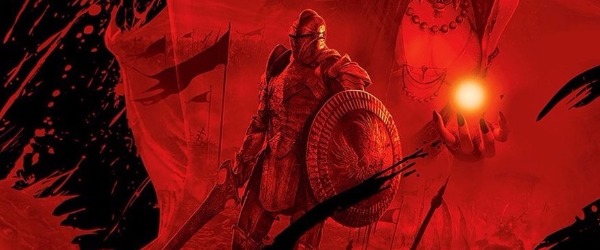
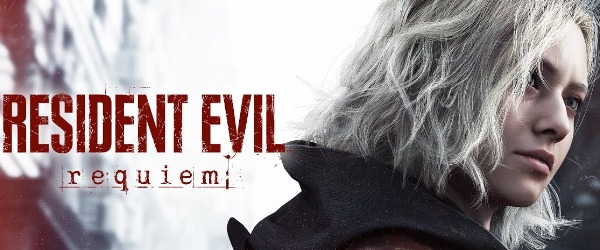

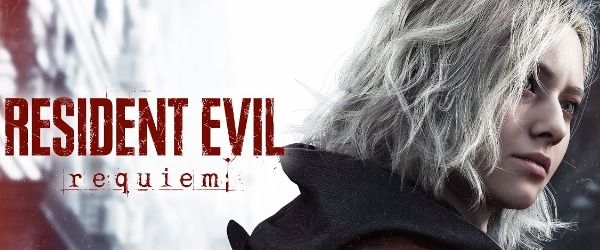










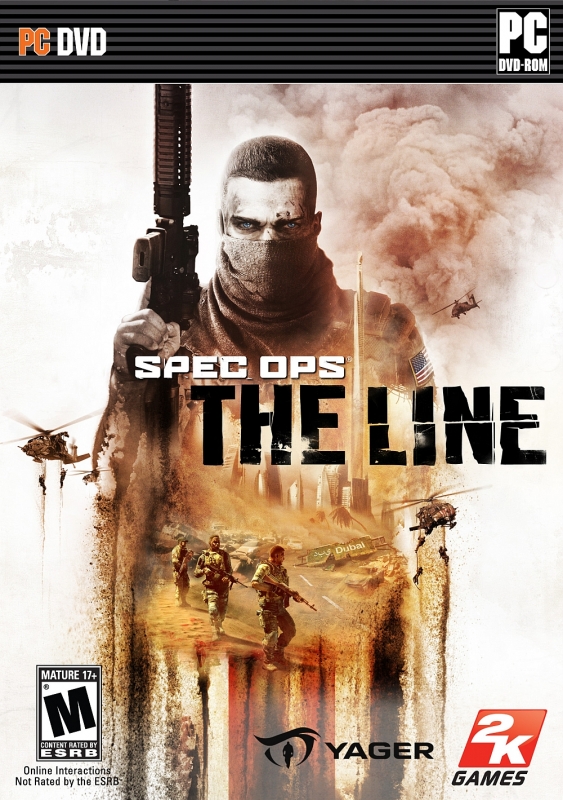

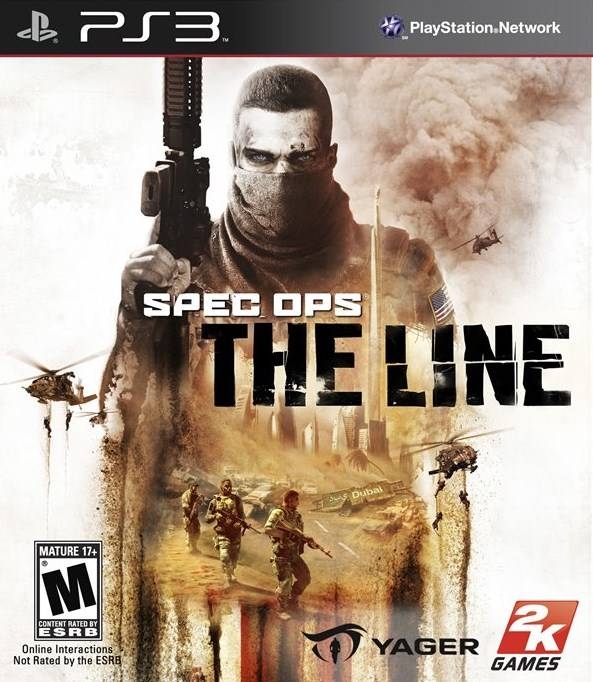

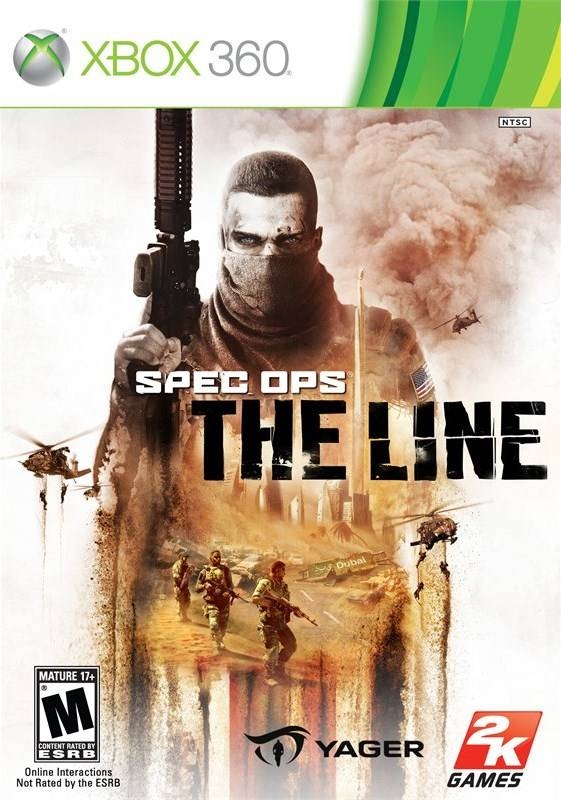

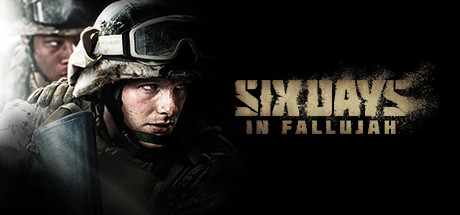
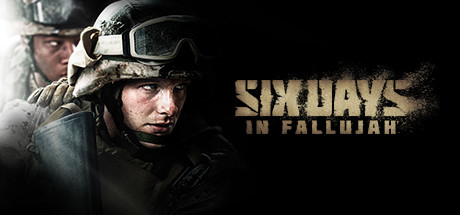

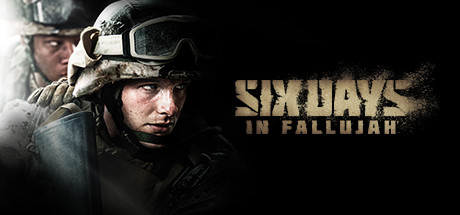

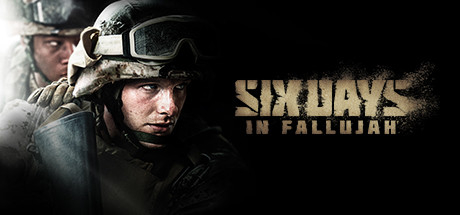

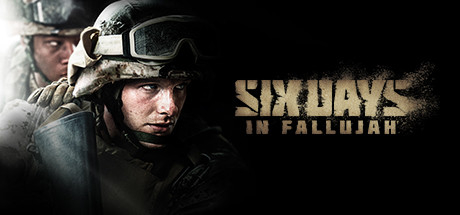

 Essay Pro
Essay Pro